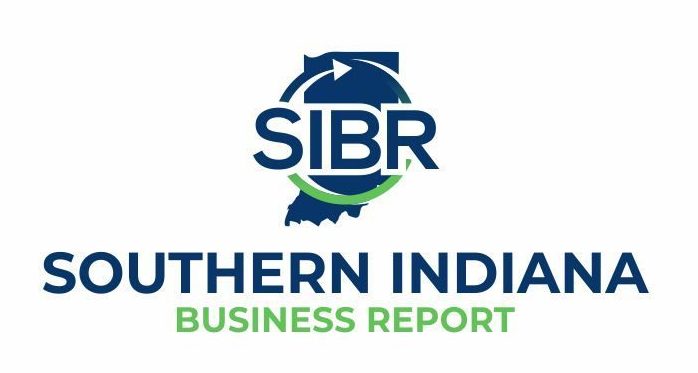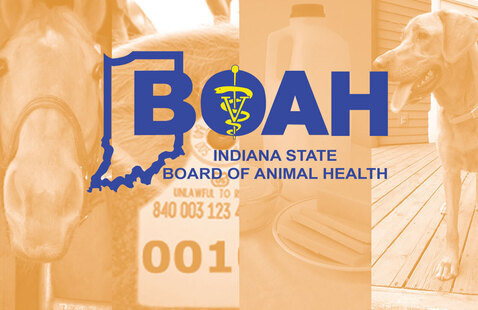Southern Indiana Business Report
GREENE COUNTY — The Indiana Board of Animal Health (BOAH) reported March 15 that it has lifted control areas around the two Greene County turkey farms where flock testing had previously confirmed Highly Pathogenic Avian Influenza (HPAI). The agency has also stated that it appears wild birds are responsible for introducing the disease to the Greene County sites and to the initial site where HPAI was found in Dubois County back on Feb. 9. In all, efforts to combat the spread of the disease in these two counties have resulted in the destruction of 171,281 turkeys.
Commercial farms in the control areas — other than the two impacted farms themselves — are no longer under quarantine, weekly and bi-weekly surveillance testing is no longer required, and movement permits are eliminated. Surveillance of backyard flocks in the control areas is wrapping up this week; owners will receive notice of the quarantine release by mail.
The two affected farms remain under quarantine until the final steps of the flock plan are complete. Final activities include compost disposal, virus elimination, environmental sampling for presence of the virus, and a fallow period.
Meanwhile, control areas remain in place around four Dubois County farms where HPAI was confirmed. All commercial flocks in the control areas must be tested for avian influenza at least weekly. Small, hobby flocks are also subject to testing. A surveillance zone is also established in the 10-km circle beyond the control area. Flocks in the surveillance zone must be tested every other week.
Background
HPAI was identified in a single commercial turkey flock in Dubois County on Feb. 9. The incident marked the first report of HPAI in commercial poultry in the United States since 2020 and the first in Indiana since 2016. (That 2016 incident also happened in Dubois County, which is Indiana’s top county for turkey production.)
Samples were collected from the birds on Feb. 7 and submitted to the Indiana Animal Disease Diagnostic Laboratory at Purdue University after approximately 100 birds died, the flock appeared lethargic, and consumption of water decreased. Tests indicated a likely infection of an H5 avian influenza virus.
Under standard protocols, the results were reported to BOAH, which authorized prompt transport of the samples to the National Veterinary Services Laboratory in Iowa for confirmatory testing. NVSL confirmed that the virus present was a highly pathogenic strain of H5N1 (with a Eurasian H5 goose/Guangdong lineage). Upon confirmation of HPAI, the 29,000 turkeys in the flock (known as Dubois 1) were depopulated to prevent the spread of the disease in the area.
On Feb. 15, laboratory testing of a second commercial flock of turkeys in Dubois County identified the H5 avian influenza virus. Upon confirmation of HPAI, the 26,473 turkeys in the flock, known as Dubois 2, were depopulated to prevent the spread of the disease in the area.
On Feb. 17, laboratory testing of a commercial flock of turkeys in Greene County identified the H5 avian influenza virus. A total of 48,000 turkeys in the flock, identified as Greene 1, were depopulated. As reported above, the control area lifted on March 15 but quarantine of the site remains intact.
On Feb. 18, laboratory testing identified H5 avian influenza in a commercial turkey flock in Greene County. A total of 15,400 turkeys in the flock known as Greene 2 were depopulated. Again, while the control area has been lifted, the quarantine of the site remains in place.
On Feb. 22, laboratory testing identified H5 avian influenza in a commercial turkey flock in Dubois County. A total of 35,908 turkeys in the Dubois 3 flock were depopulated.
On March 1, laboratory testing identified H5 avian influenza in commercial turkeys in Dubois County at a site identified as Dubois 4. A total of 16,479 birds were depopulated. H5N1 was confirmed by National Veterinary Services Laboratory in Iowa on March 1.
To date, BOAH has conducted 1,314 tests of commercial flocks and 307 tests of hobby or backyard flocks in all control areas. Hobby poultry owners in the affected areas should contact BOAH at 317-544-2387 to schedule testing at no charge.
USDA Wildlife Services is assisting with surveillance of wild birds in and near the control areas. Samples from waterfowl, pigeons, European starlings and other species have been submitted for laboratory testing. As of March 7, BOAH reported, the available epidemiologic data and analysis of more than 200 full genome H5N1 HPAI sequences from wild and domestic birds supports independent wild bird introduction for the initial detection in Dubois County and both detections in Greene County. Analysis will continue as data are available.
Food safety
Avian influenza does not present a food safety risk; poultry and eggs are safe to eat. Officials are not aware of any public health significance with this virus. No cases of human infection have been reported. Human health agencies will be monitoring workers and others in contact with birds to monitor for influenza-like illness.
Animal health
Hobby poultry owners are encouraged to be aware of the signs of avian influenza and report illness and/or death to the USDA Healthy Birds Hotline at 866-536-7593. Callers will be routed to a state or federal veterinarian in Indiana for a case assessment. Dead birds should be double-bagged and refrigerated for possible testing.
Signs include sudden death without clinical signs; lack of energy or appetite; decreased egg production; soft-shelled or misshapen eggs; swelling or purple discoloration of head, eyelids, comb, hocks; nasal discharge; coughing; sneezing; lack of coordination; and diarrhea. A resource for backyard bird health information is available online at www.aphis.usda.gov/aphis/ourfocus/animalhealth/animal-disease-information/avian/defend-the-flock-program/dtf-resources/dtf-resources.
Situation updates and status reports about ongoing avian influenza activities, along with critical disease-related information, will be posted online at https://www.in.gov/boah/species-information/avianbirds/highly-pathogenic-avian-influenza/. Users may subscribe to email and/or text updates on a subscribe link at that page.
Mental health
Community members who are affected by this animal health emergency are urged be aware of the possible impact on their mental health and to seek assistance if needed. Available resources include:
• Be Well Indiana. Feeling overwhelmed, stressed, anxious or alone? Call this free, confidential resource that’s available 24/7 to anyone in the state of Indiana. Call 2-1-1 and enter your ZIP code. Follow the prompts and select number 3 for the Be Well Crisis Helpline.
• Farm Aid: This organization connects farmers with helpful services, resources and opportunities specific to their individual needs. Call the Farmer Hotline for immediate assistance Monday through Friday from 9 a.m.-10 p.m. EST. Call 1-800-FARM-AID (1-800-327-6243).
• National Suicide Prevention Lifeline: Provides 24/7, free and confidential support for people in distress, as well as prevention and crisis resources for you or your loved ones. Dial 9-8-8 or call 1-800-273-TALK (1-800-273-8255).
About Indiana poultry production
Indiana is a leading producer of poultry, eggs and poultry products. Nationally, Indiana ranks first in ducks, second in layer chickens and table eggs, and third in turkeys. The state is also a major producer of broilers.



